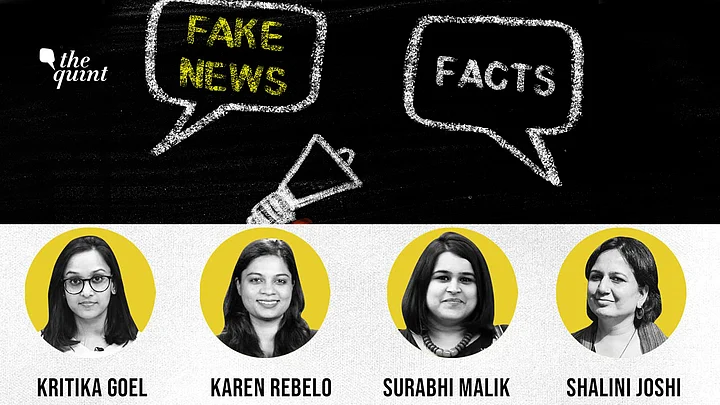The past 16 months have been relentless for journalists and fact-checkers in India. From the Pulwama attack in February 2019 to the outbreak of the novel coronavirus, misinformation has taken the public discourse by storm.
Some of the key events, which witnessed an unprecedented spike in mis/disinformation between these events were – General elections 2019, abrogation of Article 370 in Jammu and Kashmir, student protests across India, Ayodhya temple verdict, anti-CAA protests, Delhi violence etc.
This constant stream of misinformation on various social media platforms – like WhatsApp, Facebook, Twitter, and YouTube – has also put the focus on these tech giants to combat fake news and to ensure verified information reaches its users.
We discussed some of the work that fact-checkers in India are doing with Karen Rebelo, deputy editor of BOOM Live, Surabhi Malik, program director, India at Internews and Shalini Joshi, program director at Meedan.
We also tried to understand the challenges faced by them, how misinformation spreads, how to counter it and how fake news can impact one’s mental health.
We at WebQoof hope that you will find valuable the fact-check that our team has done on the post you shared with us. To do this, our team of highly trained journalists and editors spend hours using technology, ground reports, government data and other verifiable sources to separate fact from fiction. It is a time and resource-intensive operation. You can support us by becoming a member of The Quint.
(At The Quint, we question everything. Play an active role in shaping our journalism by becoming a member today.)
